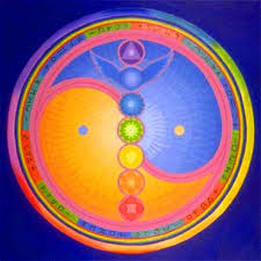YIN YOGA

So what exactly is Yin yoga? It is a more meditative approach with a physical focus much deeper than Yang like practices. Here the practitioner is trying to access the deeper tissues such as the connective tissue and fascia and many of the postures focus on areas that encompass a joint (hips, sacrum, spine). As one ages flexibility in the joints decreases and Yin yoga is a wonderful way to maintain that flexibility, something that for many don’t seem to be too concerned about until they notice it is gone.
This intimate practice of yoga requires students to be ready to get intimate with the self, with feelings, sensations, and emotions, something of which I have noticed can be easy to avoid in a fast paced yoga practice.
Now if you’ve never practiced Yin yoga you might not quite understand how this is so different, but for me Yin has dug deeper than I could have ever gotten otherwise. For my students I often tell them when they are about to try a Yin class that they need to try it three or four times to really make a decision about the practice. Many find immediate benefits like more open hips, a more relaxed body and centered mind.
Some of the benefits of Yin yoga are:
Yin yoga teaches you how to really listen, you don’t get the opportunity to go in and out, jump around and find a distracted version of stillness within your practice. Yin is such a great compliment to other styles and your own personal life, because it brings long periods of time in an uncomfortable position, which then asks you to learn to “be” to “accept what is” in that given moment. Something we can all benefit from daily. For me, I did not know how to be in my own company, I did not like to feel or be or anything that required me to have an emotion. There is something so deep about Yin that will tap into a part of you in a way only unique to Yin. And for me a healthy Yin practice has poured over into a healthier Yang practice and a healthier life as a whole. And I wish that for everyone.
This intimate practice of yoga requires students to be ready to get intimate with the self, with feelings, sensations, and emotions, something of which I have noticed can be easy to avoid in a fast paced yoga practice.
Now if you’ve never practiced Yin yoga you might not quite understand how this is so different, but for me Yin has dug deeper than I could have ever gotten otherwise. For my students I often tell them when they are about to try a Yin class that they need to try it three or four times to really make a decision about the practice. Many find immediate benefits like more open hips, a more relaxed body and centered mind.
Some of the benefits of Yin yoga are:
- Calming and balancing to the mind and body
- Regulates energy in the body
- Increases mobility in the body, especially the joints and hips
- Lowering of stress levels (no one needs that)
- Greater stamina
- Better lubrication and protection of joints
- More flexibility in joints & connective tissue
- Release of fascia throughout the body
- Help with TMJ and migraines
- Deeper Relaxation
- A great coping for anxiety and stress
- Better ability to sit for meditation
- Ultimately you will have a better Yang practice
Yin yoga teaches you how to really listen, you don’t get the opportunity to go in and out, jump around and find a distracted version of stillness within your practice. Yin is such a great compliment to other styles and your own personal life, because it brings long periods of time in an uncomfortable position, which then asks you to learn to “be” to “accept what is” in that given moment. Something we can all benefit from daily. For me, I did not know how to be in my own company, I did not like to feel or be or anything that required me to have an emotion. There is something so deep about Yin that will tap into a part of you in a way only unique to Yin. And for me a healthy Yin practice has poured over into a healthier Yang practice and a healthier life as a whole. And I wish that for everyone.
